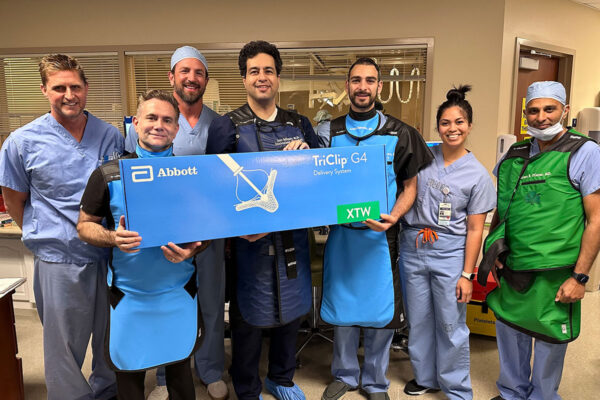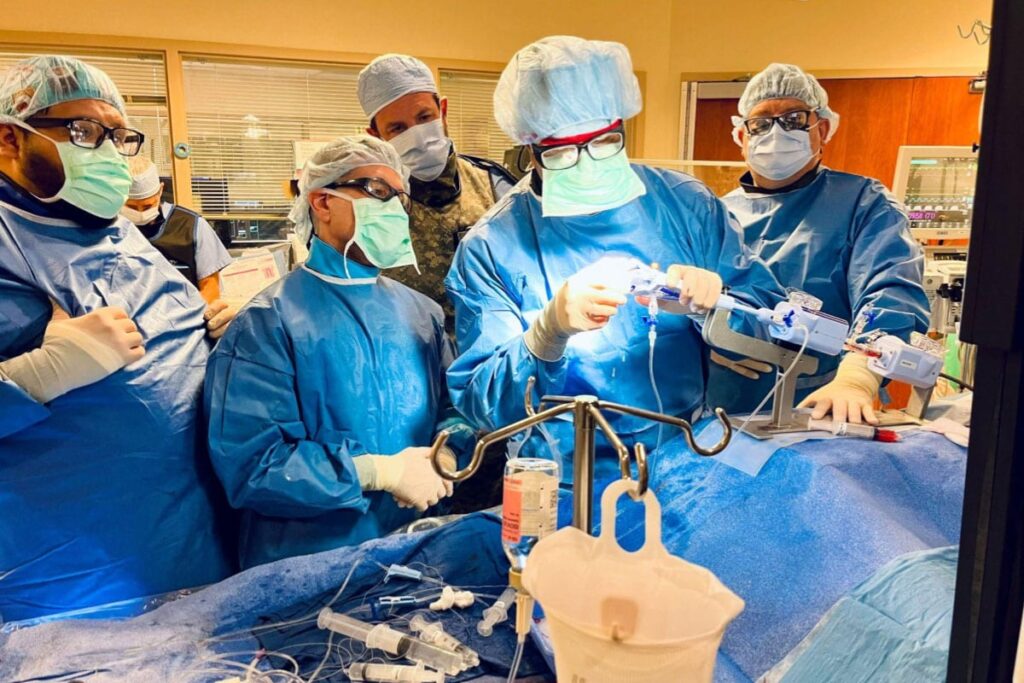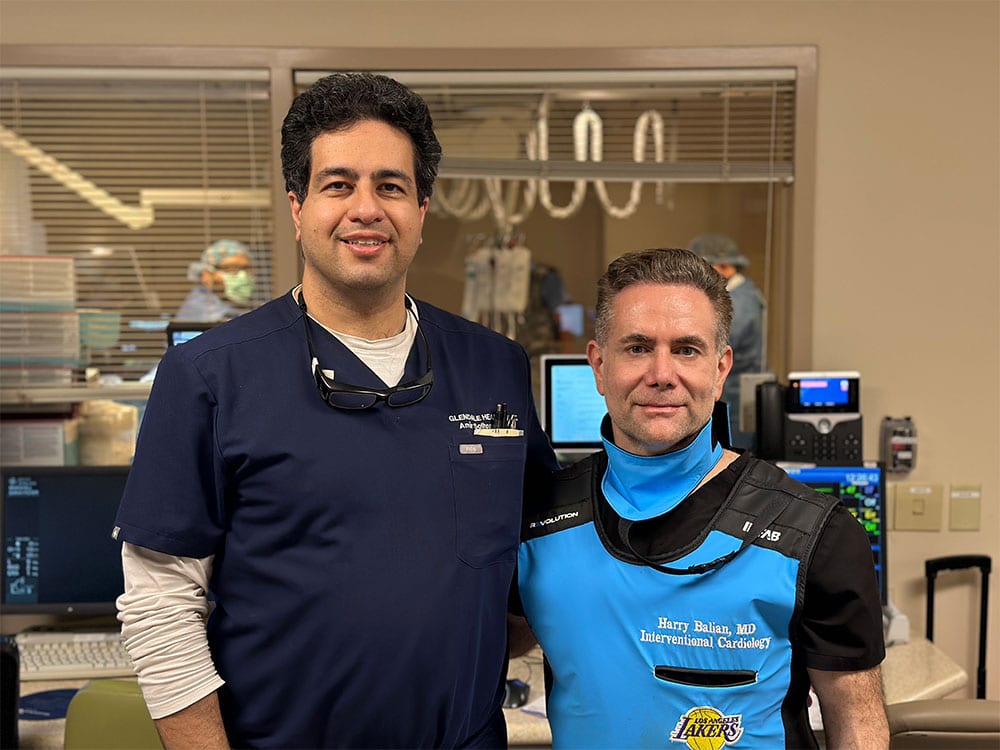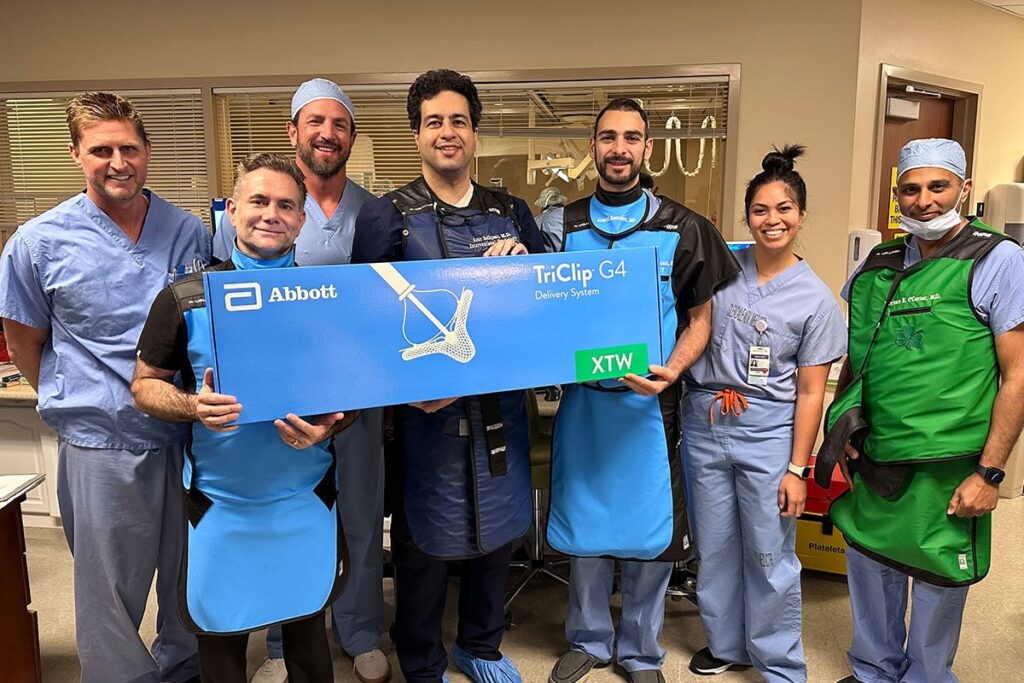On May 16, interventional cardiology specialists at Adventist Health Glendale in Glendale, California, United States, successfully performed their first TriClip procedures using the Abbott TriClip transcatheter edge-to-edge repair (TEER) system.
The TriClip is the first device to repair a leaky tricuspid valve, known as tricuspid regurgitation or “TR,” a disease in which blood leaks backward through the tricuspid heart valve. It affects 1.6 million people in the United States. Symptoms include swelling, fatigue, and atypical heart rhythms. In severe cases, TR can lead to heart failure.
The adoption of TriClip technology into the hospital’s cardiology service offerings marks another significant leading advancement for Adventist Health Glendale and its community. Recently approved by the U.S. Food and Drug Administration (FDA), this cutting-edge innovation in interventional cardiology underscores the institution’s commitment to leading the forefront of medical advancements, said Kingman Ho, chief medical officer at Adventist Health Glendale. “This milestone reflects the exceptional capabilities of our comprehensive cardiology program and the distinguished expertise of our physicians, further solidifying our position as one of Southern California’s premier cardiovascular centers.”
Harry Balian, medical director of Adventist Health Glendale’s Cardiovascular Services, and Amir Solhpour, medical director of the hospital’s Structural Heart Program, performed two successful TriClip procedures on May 16. Adventist Health Glendale is one of only four hospitals in the region to complete TriClip procedures since the device was approved in April 2024.
Armand Rostamian, a cardiologist specializing in echocardiography (also known as cardiac ultrasound), oversaw the imaging that guided Balian and Solhpour during the inaugural TriClip procedures. The surgeons were assisted by a team of cardiovascular specialty technicians and nurses in Adventist Health Glendale’s award-winning cardiac catheterization laboratory or “cath lab.” The Glendale hospital is listed as one of America’s 50 Best Hospitals for Cardiac Surgery, according to health-care information company Healthgrades.
In introducing TriClip capability, Adventist Health Glendale bolstered its cardiovascular program, which already features a wide range of diagnostic and therapeutic services, including other structural heart procedures like TAVR, Watchman, and MitraClip. Thursday’s inaugural TriClip procedures come precisely one week after Balian completed the hospital’s 200th MitraClip case, a similar, minimally invasive procedure to implant a clip in the mitral valve between the heart’s left atrium and left ventricle. Adventist Health Glendale reached the impressive milestone in four years, after Solhpour performed the hospital’s first MitraClip procedure in May 2020.
“TR is a life-threatening condition that, until now, would have required complex open-heart surgery,” Solhpour said. “The TripClip technology offers a minimally invasive treatment option for patients needing tricuspid valve repair without the inherent risks of an open-heart procedure. We’re extremely proud to be among the first in California to offer this innovative treatment option for our patients, particularly our older patients at risk of heart failure.”
The TriClip device is delivered to the heart via a catheter inserted through the femoral vein in the leg. It works by clipping together a portion of the leaflets of the tricuspid valve to reduce the backflow of blood.
Designed specifically for the right side of the heart and the tricuspid valve’s complex anatomy, the TriClip and steerable guiding catheter systems allow physicians to independently grasp and effectively clip leaflets of the tricuspid valve to reduce regurgitation.
This minimally invasive approach allows the heart to pump blood more efficiently and relieve symptoms of TR, improving patients’ quality of life. The procedure can be completed in one to two hours, and patients are typically discharged home the next day.
Tricuspid valve regurgitation is a condition in which the valve between the two right heart chambers (right ventricle and right atrium) doesn’t close properly, allowing blood to flow backward into the heart’s right atrium. The disease is often debilitating, causing symptoms such as shortness of breath and fatigue, and when left untreated, may progress into conditions such as atrial fibrillation (AF) and heart failure.
Traditionally, the only treatment options for TR have been surgery, which is rarely performed due to the complexity of the procedure and the high risks involved, and medical therapy, which is usually not successful in reducing TR symptoms. The TriClip device provides a much-needed treatment option for people suffering from this condition.
The original version of this release was posted by Adventist Health News.







